أحدث استطلاع رأي لـ Paradigms: من سيفوز بأصوات الناخبين الرئيسيين للعملات المشفرة في الانتخابات العامة؟
Original title: October 2024 Public Opinion Poll
Original author: Justin Slaughter, Dominique Little
الترجمة الأصلية: Odaily Planet Daily Husband How

In the upcoming US election in November 2024, the influence of تشفيرcurrency is becoming increasingly significant and may become a key factor in determining the outcome.
According to the latest poll by Paradigm, 5% of voters consider cryptocurrency policy as the main consideration for their vote, and this proportion is more prominent among young voters and men. Among voters, 20% have invested in or used cryptocurrencies, and another 15% plan to invest in the next year, which shows that the acceptance of cryptocurrencies is increasing.
The results also reveal voters’ attitudes toward the two main candidates, Kamala Harris and Donald Trump. Although Harris has a slight lead in overall support, the two candidates are tied among cryptocurrency holders. This suggests that the voting intentions of cryptocurrency holders could have an important impact on the outcome of the election.
It is worth noting that voters trust in the Republican Partys cryptocurrency policy has increased, which may affect the voting choices of independent voters. In addition, more and more voters believe that cryptocurrency will play an important role in the future economy. This shift in opinion reflects the growing awareness of DeFi.
Overall, the rise of cryptocurrency has not only changed the landscape of the financial market, but is also playing an increasingly important role in the political sphere, adding new variables to the upcoming election.
The following is the original content, translated by Odaily Planet Daily.
Paradigm Note: This poll was conducted October 17-22 using the Dynata online panel, with quotas set and weighted by age, gender, education, and race to reflect likely voters in November 2024. The sample size was 1,000 likely voters, with a margin of error of 3.53%, and an oversampling of 247 unique voters, with a margin of error of 7.11%.
For political observers, we find that Democrats lead in the popular vote for Congress 44% to 43%, with 44% of respondents identifying as Republicans and 42% identifying as Democrats, while Joe Bidens job approval rating is 41% to 59%. Harris leads Trump nationally 48% to 46%; among independent voters, Harris leads 42% to 30%.
Crypto voters will play an important role in the US election this November.
This is the main takeaway from our October 2024 poll, the last full poll of this election cycle. With 5% of voters identifying themselves as single-issue crypto voters, voters who own crypto could very well be the difference between winning and losing in what looks like a close election. At the same time, the U.S. electorate’s views on crypto are expanding and maturing, with more and more voters seeing crypto as an important part of their future lives.
Takeaway #1: A quarter of cryptocurrency holders identify themselves as single-issue voters
We asked the 20% of voters who had purchased cryptocurrency: “Do you think the government’s cryptocurrency policy is the most important policy in your choice of candidate?”
Of this group, a quarter (5% of all voters) say they are single-issue crypto voters. This includes 11% of voters aged 18-34, 8% of men, and 7% of non-white voters (including 7% of black voters and 8% of Hispanic voters). In key swing states such as Pennsylvania, Michigan, Wisconsin, and Georgia, where the margin of victory is usually 1-2 percentage points, 5% of voters can be the deciding factor in winning or losing.

Point 2: Cryptocurrency ownership is expected to continue to grow
As of this month, 20% of voters said they have invested in, traded or used cryptocurrencies such as Bitcoin or Ethereum, and another 15% said they might invest in cryptocurrencies within the next year. This number rises to 21% and 18% respectively among independent voters. 1% of voters said they invested in cryptocurrency for the first time in the past few weeks, including 3% of independent voters.
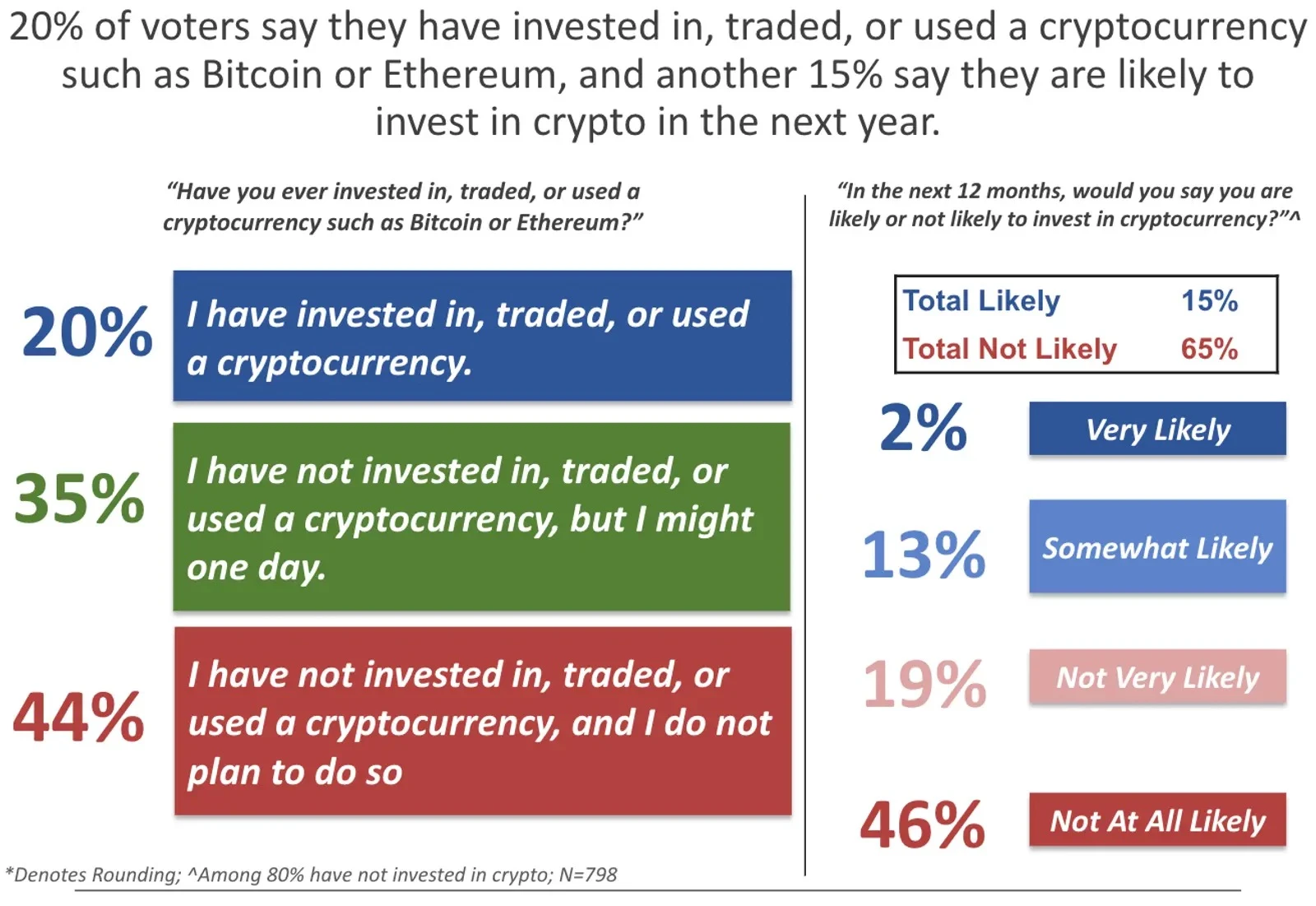
Point 3: Cryptocurrency holders are still young, non-white and male
29% of men have purchased cryptocurrencies, compared to just 12% of women. Consistent with our March survey, 40% of men aged 18-54 have purchased cryptocurrencies, compared to 16% of women aged 18-34 and 19% of women aged 35-54. In this survey, the percentage of non-white voters who have purchased cryptocurrencies is 23%, down from previous surveys, while the percentage of white voters has increased to 19%. This matches the demographics of the key swing voters that the Harris and Trump campaigns are fighting for in the final round .
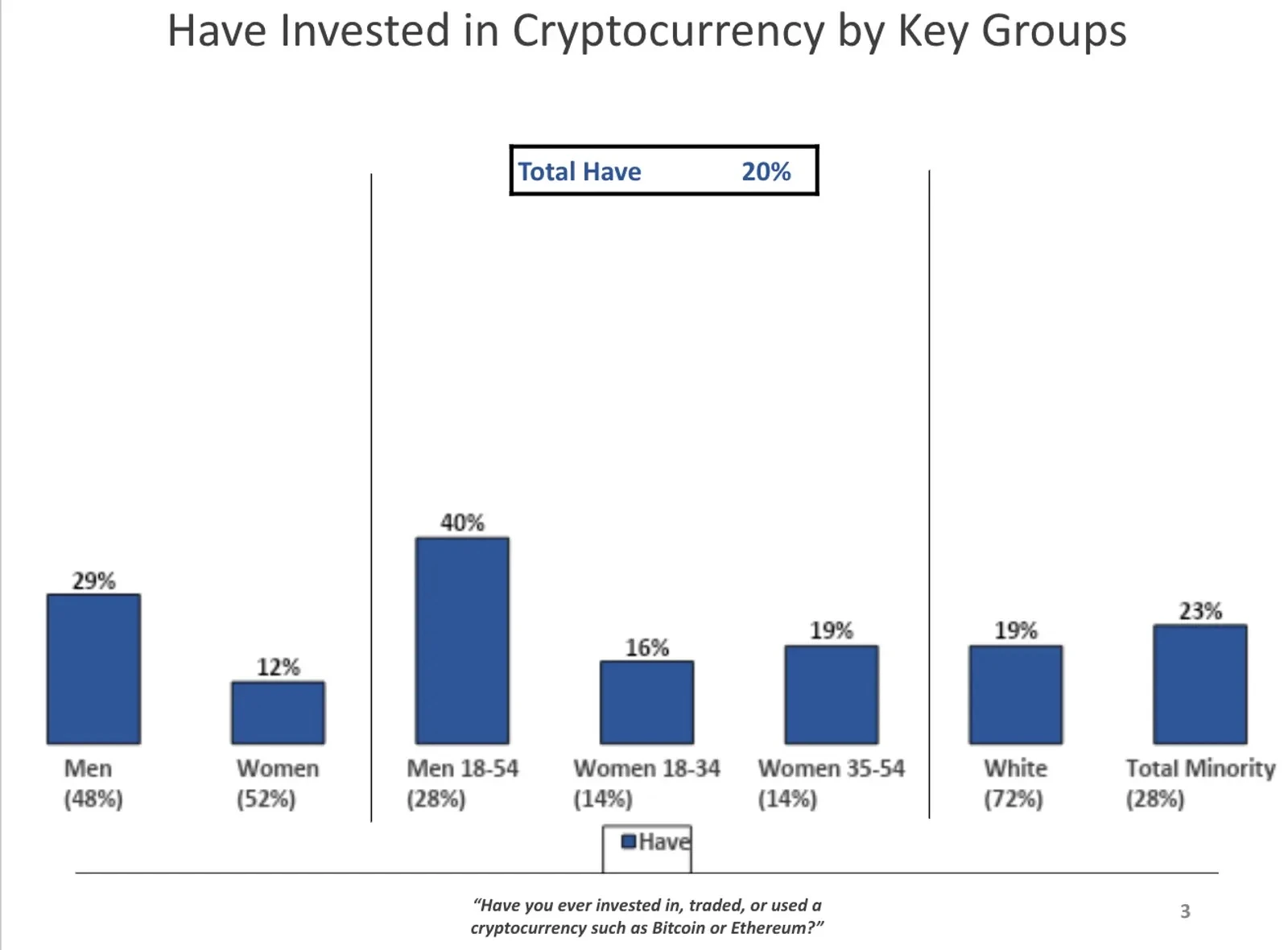
Point 4: Cryptocurrency holders could be the deciding factor in this election
Of all voters surveyed, 48% support Vice President Kamala Harris and 46% support former President Donald Trump. However, among voters who have purchased cryptocurrencies, the candidates are tied at 47%. Among voters who have not purchased cryptocurrencies, Harris leads 48% to 45%. These changes are within the margin of error. We know that the number of votes that may decide the outcome of this election is very small, and the popular vote margin is expected to tilt about 2-3% in favor of the Democrats.

Point 5: Voters’ trust in Republicans on cryptocurrency policy has increased
In March, we asked voters, “Which political party do you trust more with regard to cryptocurrency?” 25% chose the Democrats, 24% chose the Republicans, 3% trusted both, and 49% chose to trust neither. Six months later, when we asked this question again, 30% of voters said they trusted the Republicans more, 24% said they trusted the Democrats more, 5% trusted both, and 41% chose to trust neither. Independent voters were undecided, with 9% trusting the Republicans, 10% trusting the Democrats, and 72% trusting neither.
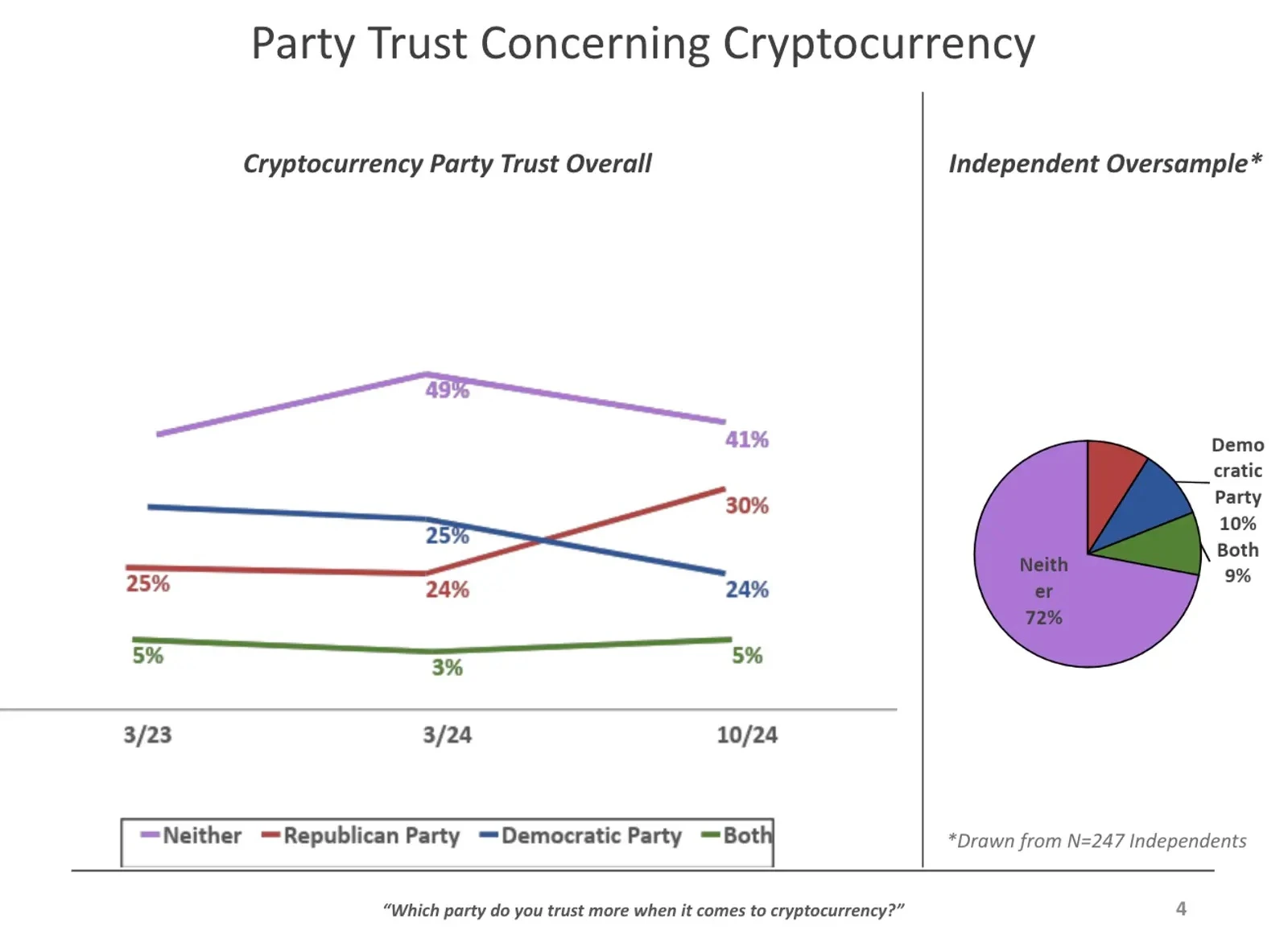
Point 6: Americans are increasingly looking forward to the use of cryptocurrencies in their daily lives in the future
When asked whether voters see cryptocurrency as a passing fad or an important part of the long-term economy, 46% of voters and 47% of independents believe it will become an important part of the economy. Given that only 20% of voters have ever purchased cryptocurrency, these figures suggest that even the tens of millions of voters who have not directly purchased cryptocurrency see it as an important part of American life in the future.
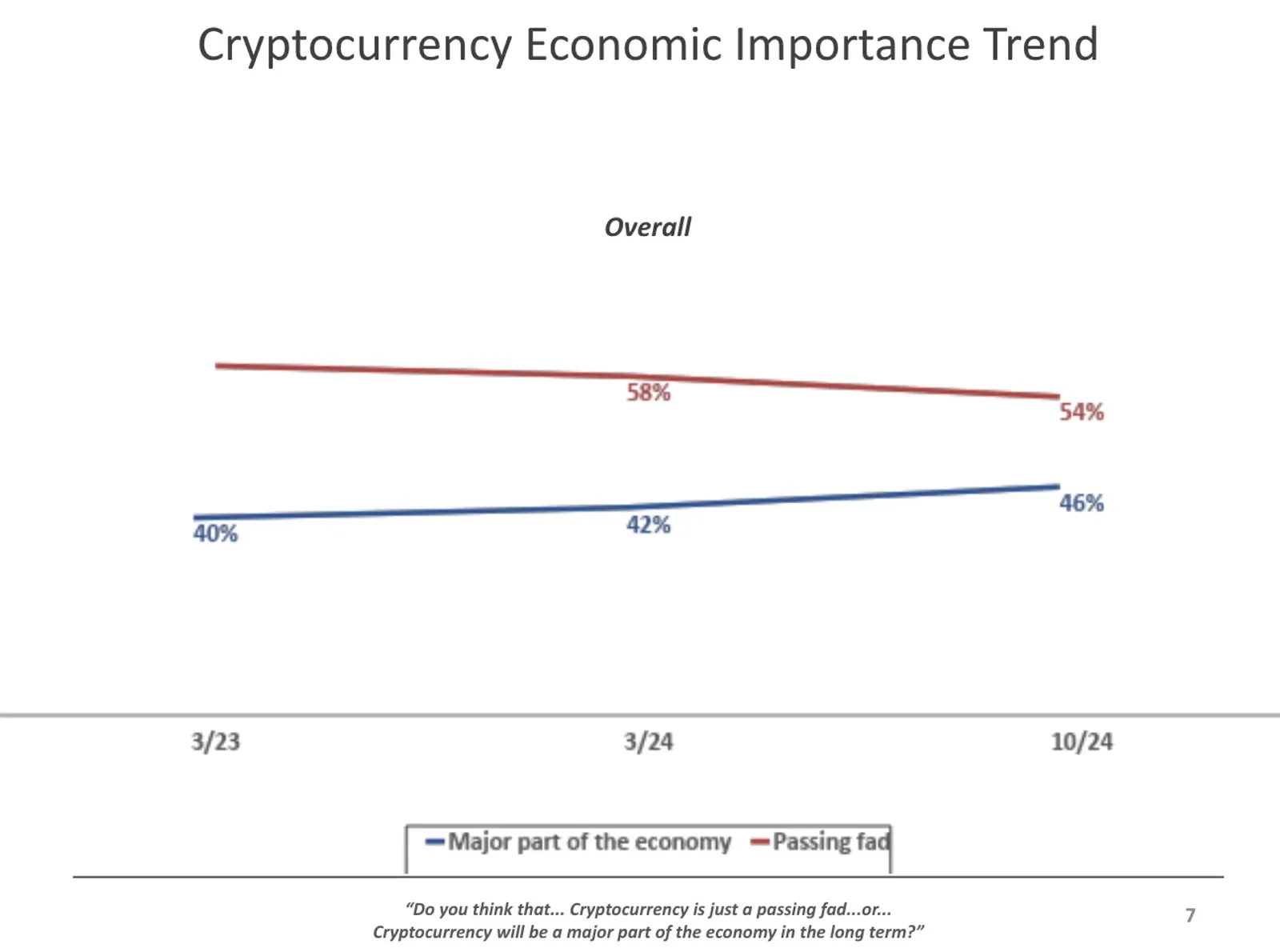
Point 7: Crypto holders believe Trump is better for crypto
We asked voters who have purchased cryptocurrencies, “Who do you think would be better for the growth and regulation of cryptocurrencies?” 58% of crypto holders (12% of voters overall) think Trump would be better, while 42% (less than 9% of voters) think Harris would be better. Further highlighting the complexity of crypto voters, 7% think Trump would be better but voted for Harris, while 2% think Harris would be better but voted for Trump.
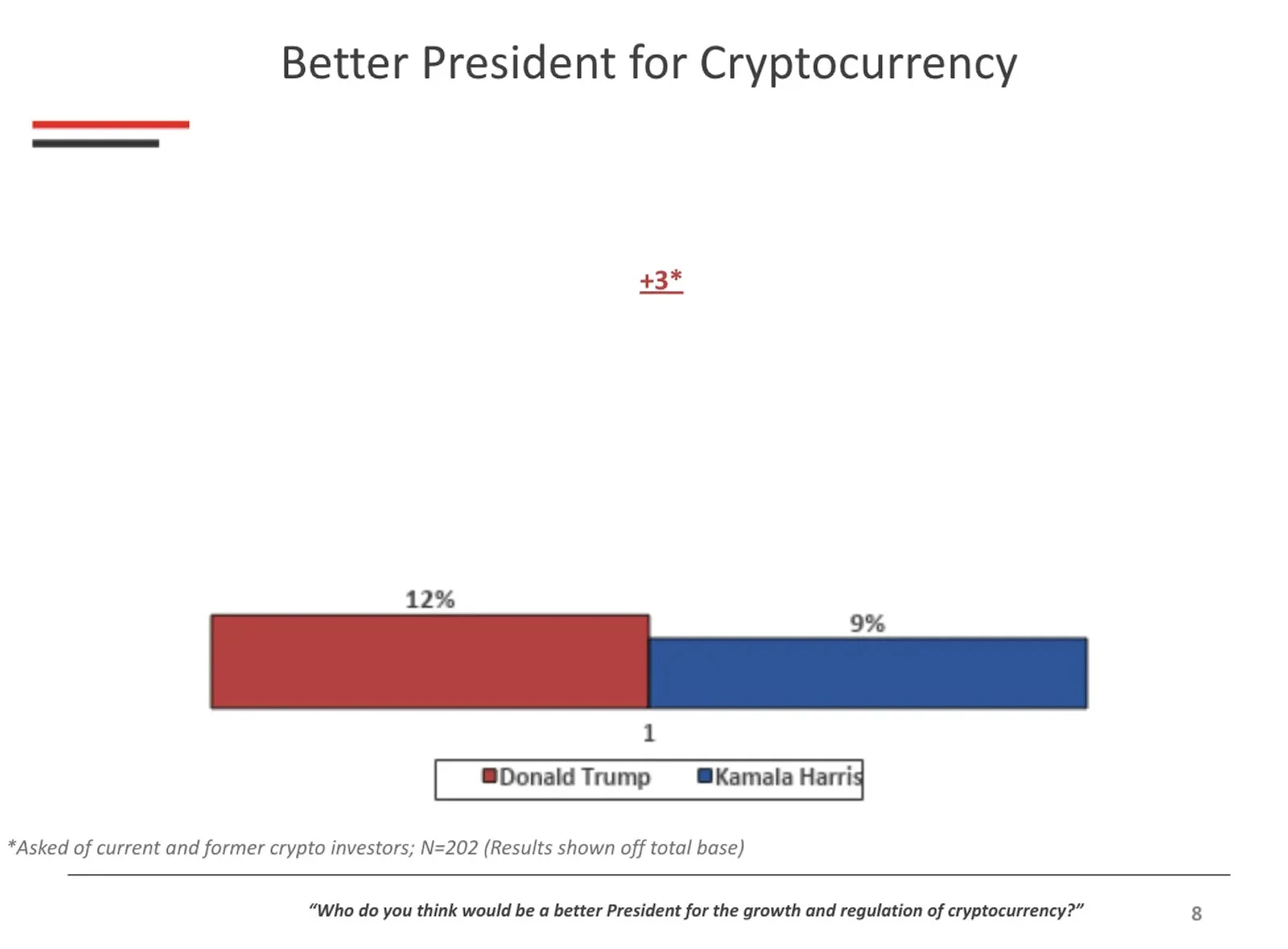
Point 8: Voters still view the Biden administration negatively on cryptocurrency and tech policy, but are more positive about Trump or Harris
We asked voters, “Given the Biden administration’s policies on technology and cryptocurrency, do you think they are good or bad for American innovation?” 49% of voters said the policies are good, while 51% said they are bad. Among independent voters, the negative view is even more pronounced, with 54% saying they are very bad or somewhat bad. Only 11% of voters think the policies are very good.
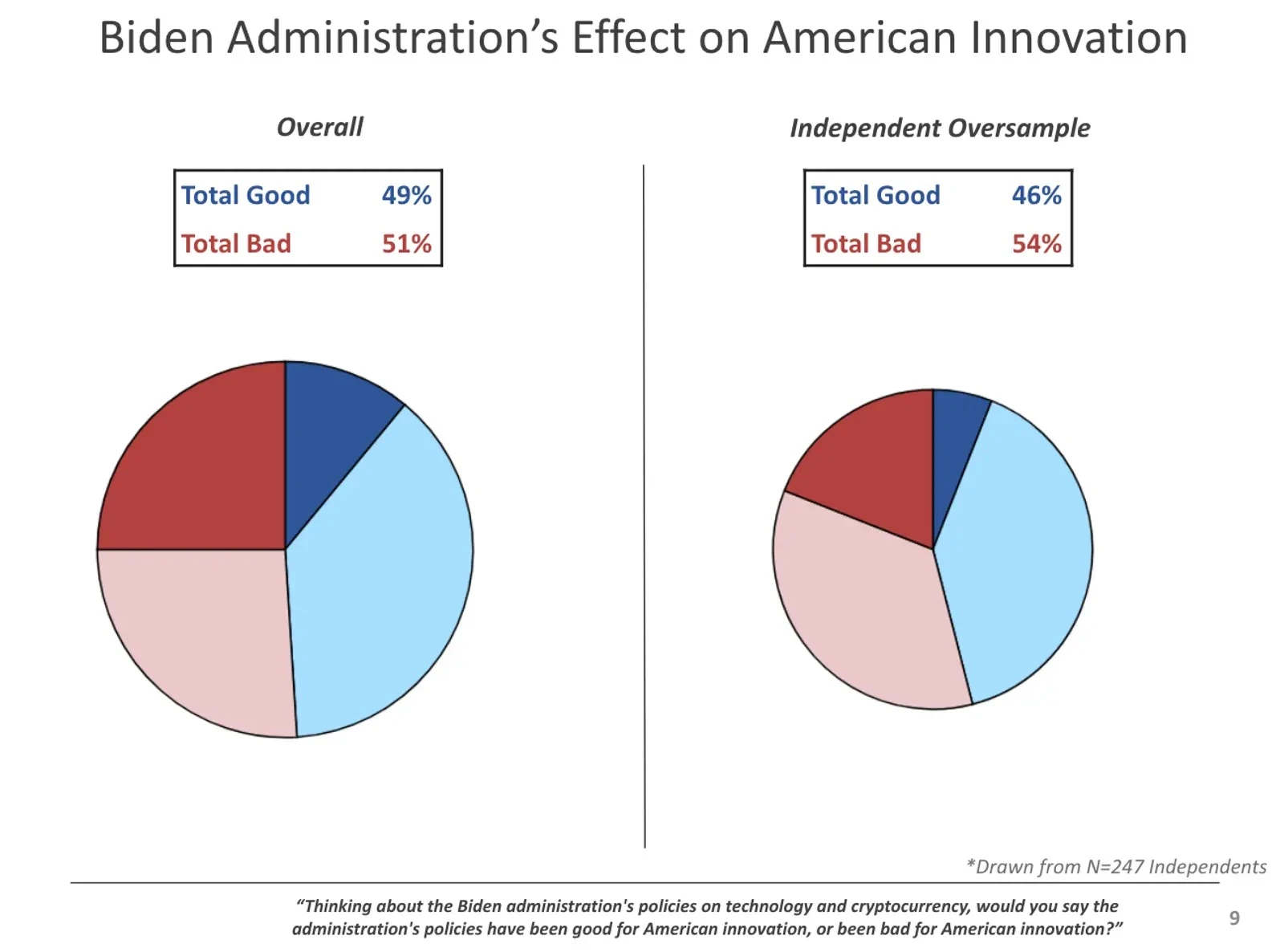
We also asked voters how much they care about innovation in the U.S., with both Trump and Harris giving it a 5.5 rating and independent voters giving it a 5.1 rating. Overall, voters seem to think that Harris and Trumps administrations will be more positive about technology and innovation than the Biden administration.
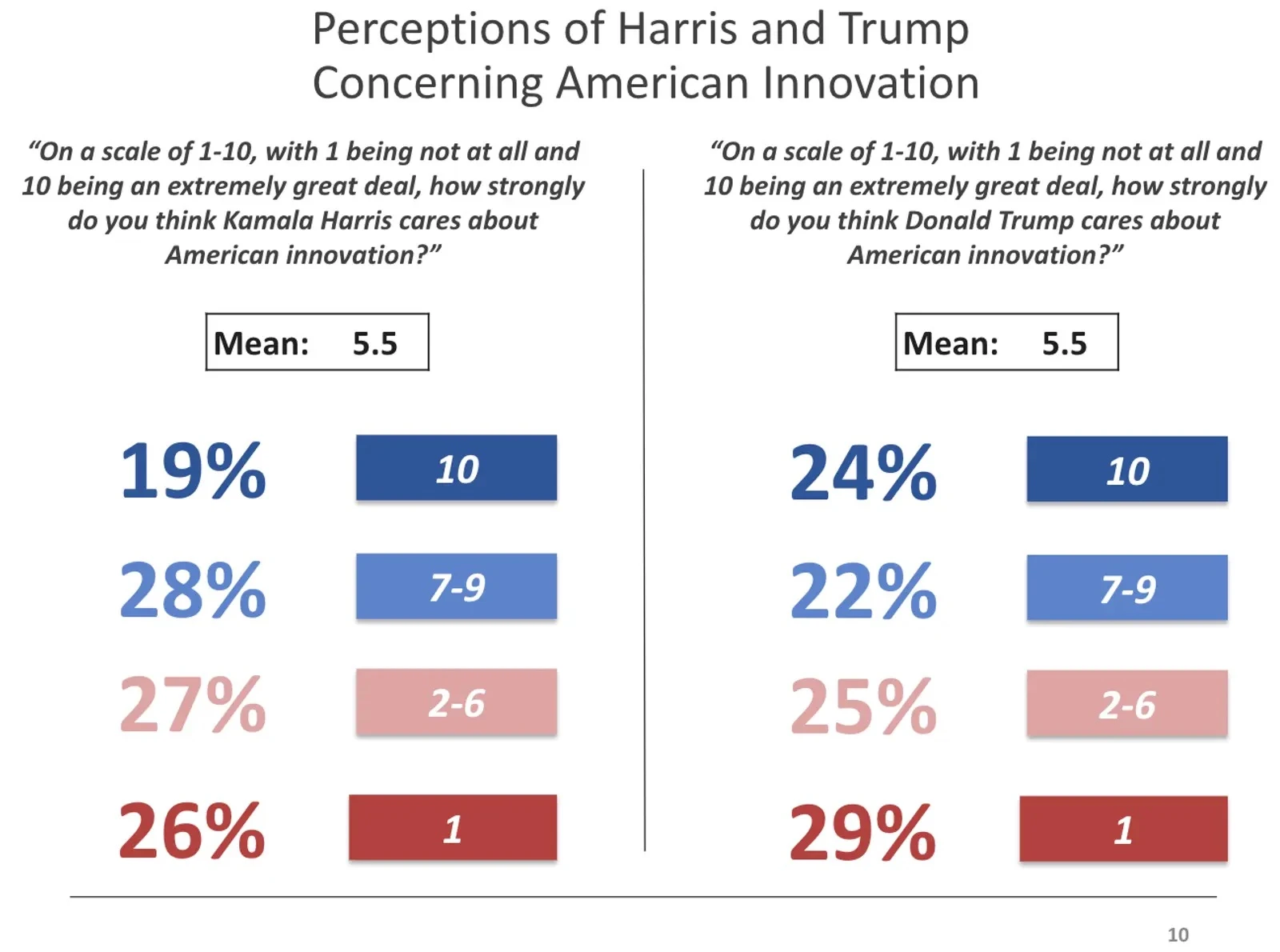
Point 9: People’s awareness of decentralized finance (DeFi) is increasing
We asked voters if they had heard of DeFi, and 53% of U.S. voters said they had heard of the term. However, opinions on DeFi have yet to be formed, with only 10% of voters having a favorable view of DeFi, 16% having an unfavorable view, and 27% having no opinion. Independent voters were almost evenly divided, with 11% having a positive view of DeFi, 13% having a negative view, and 30% having no opinion.
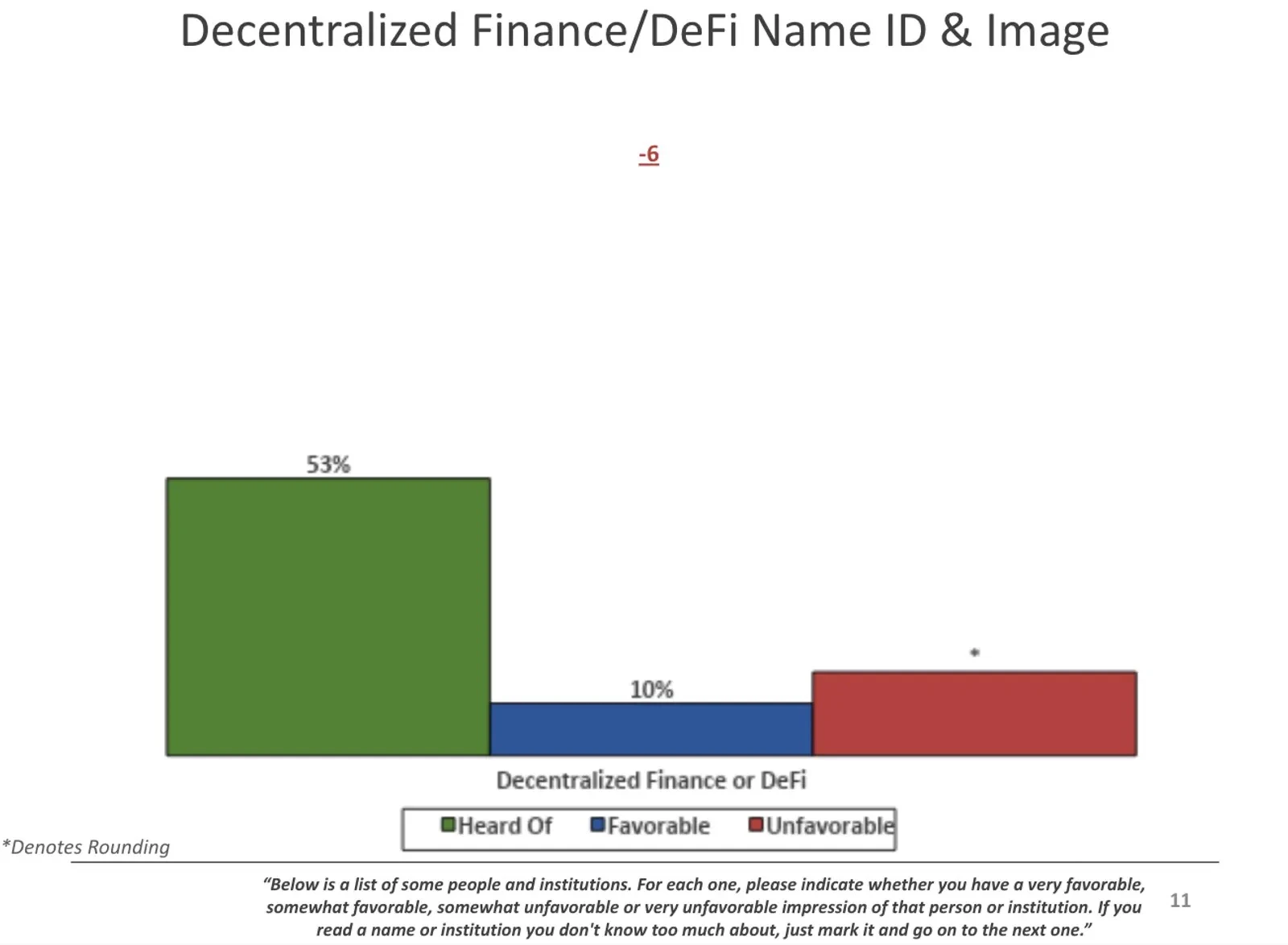
This article is sourced from the internet: Paradigms latest poll: Who will win the key crypto voters in the general election?







